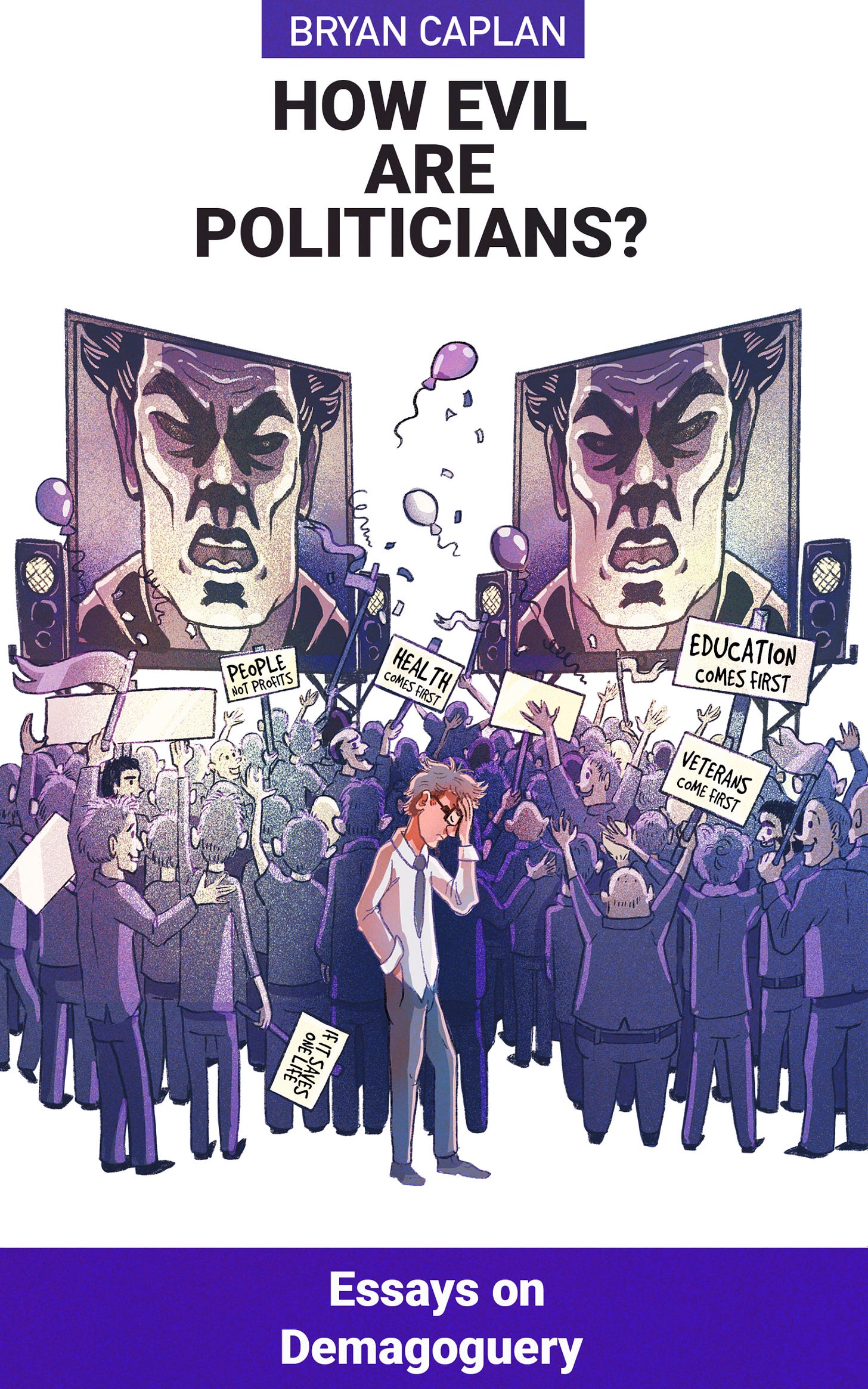
After I performed at the Comedy Cellar, a humor-impaired member of the audience contacted me. He was unhappy with my use of the phrase “propaganda about sexual orientation or gender dysphoria.” What exactly did I mean by the word “propaganda,” anyway?
My knee-jerk response was to scoff, “People like you have no place in comedy clubs,” but it got me thinking. What exactly does the word “propaganda” mean?
The connotation is plainly negative. But what precisely is the nature of the negativity?
You could say, “Calling X ‘propaganda’ insinuates that the speaker is wrong.” But most errors clearly don’t qualify as propaganda. If I send a lone tweet that “1+1=3,” that wouldn’t count. Nor would a 30-page essay arguing that Biden is Bigfoot.
You could say, “Calling X ‘propaganda’ insinuates that the speaker is lying.” But most lies don’t qualify as propaganda either. Coming from my mouth, “I’m eager to see the next Avengers movie” would be a lie, but it’s hardly propaganda.
You could say, “Calling X ‘propaganda’ insinuates that the speaker has low intellectual standards.” Again, though, most people have low intellectual standards, yet that hardly turns them into “propagandists.”
If all of these stories are wrong, what story is right? Here is my favorite answer, in slogan form: Propaganda is proof by repetition. When you repeat yourself over and over in order to persuade others by sheer endurance, your words are propaganda. When you repeat yourself over and over in order to persuade others by sheer endurance, your words are propaganda. When you repeat yourself over and over in order to persuade others by sheer endurance, your words are propaganda. When you repeat yourself over and over in order to persuade others by sheer endurance, your words are propaganda. When you repeat yourself over and over in order to persuade others by sheer endurance, your words are propaganda. When you repeat yourself over and over in order to persuade others by sheer endurance, your words are propaganda. When you repeat yourself over and over in order to persuade others by sheer endurance, your words are propaganda.
OK, I repeated my claim seven times. Do you believe me now? Hopefully not, but that’s the whole idea of propaganda. Forget arguments. Forget evidence. Just tirelessly mouth a few simple slogans until you win.
Sheer repetition aside, here are some canonical examples that fit my story.
Election propaganda. The vast majority of political advertising makes no arguments of any kind. Instead, it just says, “Vote Bush!” or “Make America Great Again” or “Change!” over and over and over and over.
Public health propaganda. The vast majority of official Covid statements offered no arguments and no numbers. Instead, we just heard “6 feet apart!,” “Mask up!” and so on over and over and over and over.
Propaganda about sexual orientation and gender dysphoria. Again, we hear near-zero arguments and near-zero evidence. Just “Trans women are women,” “J.K. Rowling is a TERF,” and “My pronouns are…” over and over and over and over.
Business propaganda. Unlike the preceding examples, ordinary commercials try to entertain. But they’re still trying to win you over by sheer repetition over and over and over and over.
Notice: Logically speaking, you can try to promote wonderful ideas via propaganda. In practice, however, we should expect ideas promoted via propaganda to be less than wonderful. Why? If your ideas are good, then selling them via argument and evidence is relatively easy. If your ideas are bad, in contrast, proof by repetition is one of your best remaining persuasive strategies.
To be fair, you might promote good ideas via propaganda because you hold your audience’s intelligence or rationality in low regard. If you want kids to brush their teeth, you don’t show them academic journals on tooth decay. You just harangue them with “Brush your teeth three times a day!” over and over and over and over. Why treat them this way? Because you doubt their intelligence and/or rationality. Probably rightly.
The upshot: Whenever you call X “propaganda,” you aren’t just pointing out that intelligent, rational people would not be change their minds in response to X. You’re also implying that the speakers hold their listeners’ intellects in low regard.
Since “I’m talking to a bunch of weak-minded fools” is a classic violation of Social Desirability Bias, the speakers naturally resent the implication. Still, it may be true. Propaganda is not always false. If your audience is dumb and irrational enough, propaganda is one of the few methods of persuasion that is likely to work. But any smart, rational person who hears your propaganda still has solid reasons to feel insulted and suspect you’re wrong.










> If your ideas are good, then selling them via argument and evidence is relatively easy
Like YIMBY, or tariffs-are-bad ;-?
I have a friend whose father was a Minister. She tells the story of watching him at work on a sermon. Every once in a while he would make a note...." weak point, pound pulpit "